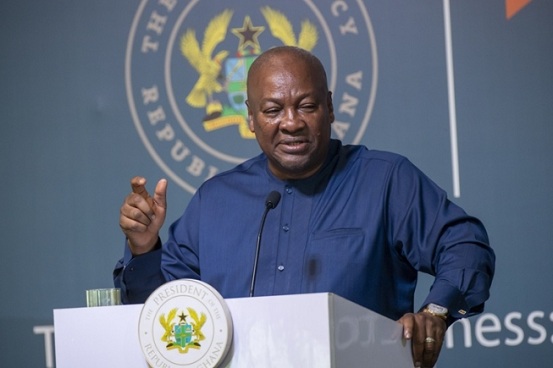At the 2025 Kwahu Business Forum in Mpraeso, President John Mahama delivered a compelling address centered on transforming Ghana’s economic future through deep-rooted reforms in the financial sector.
Speaking on the theme “The Future of Business: The Role of the Financial Sector”, the President outlined his vision for a resilient, inclusive, and productive economy.
Acknowledging the current economic challenges—including high inflation, a weakened cedi, and elevated debt levels—Mahama expressed optimism about early signs of stabilization. However, he emphasized that mere recovery isn’t enough; Ghana must pursue transformation that prioritizes opportunities for all, especially small and medium-sized enterprises (SMEs), youth, and rural communities.
He announced a set of bold measures to reshape the financial landscape:
- Expanding access to affordable financing through institutions such as the Ghana Development Bank, the Women’s Development Bank, and strategic partnerships with private financial institutions.
- Providing targeted support for SMEs, including access to tailored financing packages, tax incentives, and technical assistance.
- Modernizing infrastructure—including roads, logistics networks, and digital connectivity—to create an enabling environment where businesses can grow and compete effectively.
- Reducing the cost of borrowing by reforming the credit system and promoting blended finance instruments to make capital more accessible.
- Refocusing the financial sector to serve the real economy, shifting emphasis away from government lending and speculative trading toward productive investment in businesses.
Mahama also highlighted the upcoming Jobs and Skills Compact, designed to align education and training with market needs. This initiative, he noted, is part of his broader strategy to roll out a 24-Hour Economy, enhancing productivity through reliable infrastructure and around-the-clock business operations.
The President concluded by calling for stronger public-private partnerships and reaffirmed his commitment to fostering a transparent, corruption-free government that sees the private sector as a development partner—not just a source of tax revenue.





